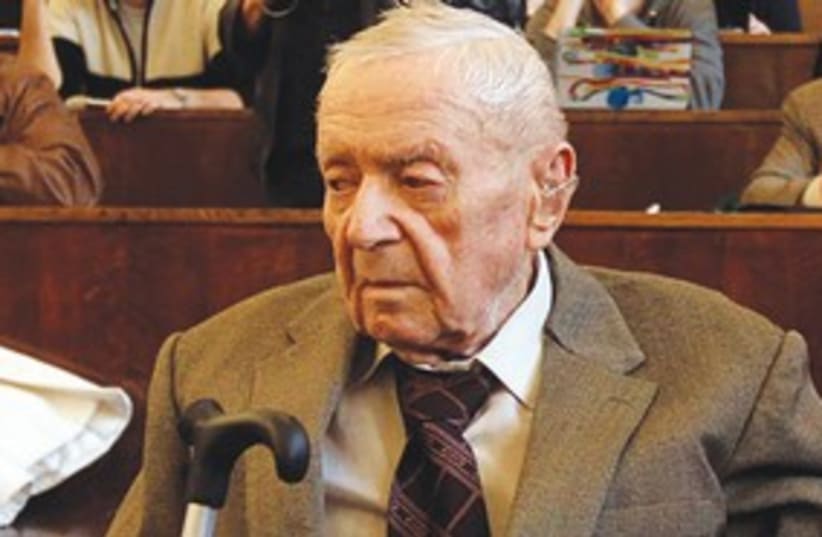The writer is the chief Nazi-hunter of the Simon Wiesenthal Center and director of its Israel Office. His most recent book, Operation Last Chance; One Man’s Quest to Bring Nazi Criminals to Justice, relates how he discovered Sandor Kepiro living in Budapest, as well as many other Holocaust perpetrators all over the world.
Sandor Kepiro and the question of Hungarian justice
Every democracy claims its judiciary is independent, but there is no doubt that the courts also reflect local political opinions and prejudices.

The writer is the chief Nazi-hunter of the Simon Wiesenthal Center and director of its Israel Office. His most recent book, Operation Last Chance; One Man’s Quest to Bring Nazi Criminals to Justice, relates how he discovered Sandor Kepiro living in Budapest, as well as many other Holocaust perpetrators all over the world.